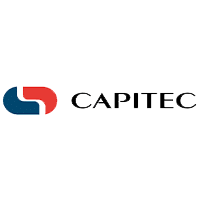AML Guide for the Insurance Industry
AML Guide for the Insurance Industry
Money laundering and insurance companies
Insurance companies are at risk of falling victim to money laundering criminals because they can:
Single-premium
contracts
Annuity policies & other high-premium saving vehicles
These are also used as a tool for money laundering. By purchasing a product with illegally acquired funds, criminals can receive legitimate income once they begin receiving income from the insurance contract.
Cooling-off
periods
Top-ups
Top-ups, i.e. when someone pays a small initial premium to avoid attracting any regulatory attention - only to then offload additional payments - is another way that criminals use the insurance industry to legitimise illegal funds.
Transfer of ownership
Criminals can also launder money through insurance companies by transferring the ownership of insurance policies, taking out policy loans, or selling their life insurance policy to customers in poor health in the illegal third-party market.
AML Regulations in the Insurance Industry
To prevent money laundering, insurance companies must comply with stringent AML regulations. This includes implementing procedures to detect suspicious activities, ensuring due diligence, and maintaining robust systems for reporting illegal activity.
Know Your Customer (KYC) Requirements
All insurance companies are required to establish KYC procedures so they can identify the individuals they are doing business with and assess the risk level associated with working with them.
This process involves the following:
- Collecting personal information to verify an individual’s identity;
- Verifying that the credentials received are valid and accurate;
- Identifying individuals, legal entities, and foundations that purchase an insurance product; and
- Verifying the ultimate beneficiary ownership
As they collect this information, employees should assess the risk level associated with each customer. Does the purpose of the insurance policy seem suspicious, or is the product that they are purchasing one that is commonly associated with money laundering?
Sanctions lists
PEP data
Our Politically Exposed Persons (PEP) database covers about 1million records from every country worldwide. Lists also include family members and close associates of PEPs.
Crime Watchlists
Adverse media
Key Industries Solutions
We provide vital support to compliance teams across a wide array of sectors, including FinTechs, enterprise SaaS providers, InsurTechs, cryptocurrency firms, and many more.
For a detailed guide on how AML Sanctions Screening applies to your industry, click the relevant icon below.
Global Sanctions Lists
The sanctions lists below are included in every sanctions data subscription. Additional sanctions lists can be included on request, please contact support for more information.
United States
Office of Foreign Asset Control (OFAC)
Specially Designated Nationals (SDN), Consolidated Sanctions List (Non-SDN) and various additional sanctions lists (MBS, CCMC, CMIC, CAPTA, FSE, PLC, SSI).
Canada
Global Affairs Canada
Consolidated Canadian Autonomous Sanctions List incl. Special Economic Measures Act (SEMA) and the Justice for Victims of Corrupt Foreign Officials Act.
United States
Department of State (DoS)
ITAR Debarred (ITAR), Nonproliferation Sanctions (ISN), Cuba Restricted List.
United States
Bureau of Industry and Security (BIS)
Entity List (EL), Denied Persons List (DPL), Military End User List (MEU), Unverified List (UVL).
United States
Financial Crimes Enforcement Network (FinCEN)
311 Special Measures.
United States
Department of Homeland Security (DHS)
Uyghur Forced Labor Prevention Act Entity List (UFLPA).
United States
U.S. Customs and Border Protection
Withhold Release Orders.
Argentina
Ministry of Justice
Public Registry of Persons and Entities Linked to Acts of Terrorism and Financing (RePET).
Brazil
Brazil Central Bank
Register of persons disqualified from senior roles, and Entities Prohibited from Offering Auditing Services.
Brazil
Brazil Federal Government
Empresas Inidôneas e Suspensas (Disreputable and Suspended Companies).
Brazil
Brazil Tribunal de Contas da União (TCU)
List of individuals disqualified from public service and debarred bidders.
* Additional sanctions lists can be added on demand. Just reach out to our Customer Success Team.
Politically Exposed Persons
What are Politically Exposed Persons (PEPs)?
Domestic Politically Exposed Person (DPEP)
These are individuals who hold prominent public positions within their own country.
This includes:
- Heads of state or government
- Senior politicians, government ministers, and judiciary officials
- Senior executives of state-owned corporations
- High-ranking military officials.They are classified as DPEPs due to their potential access to public resources, which could make them vulnerable to corruption or abuse of power.
Foreign Politically Exposed Person (FPEP)
These are individuals who hold, or have held, similar high-level roles in foreign countries. FPEPs are foreign officials or their associates who might also be in a position to abuse their influence for personal or financial gain.
Examples include:
- Foreign heads of state or government officials
- Senior politicians or diplomats from foreign governments
- Foreign judges or military leaders
Domestic Politically Influenceable Person (DPIP) - Family Members
These are close relatives of Domestic PEPs (DPEPs).
Family members can include:
- Spouses or partners
- Children and their spouses or partners
- Parents, siblings, or other close relatives. Due to their relationship with a politically exposed person, they may have access to privileged information or influence, which makes them susceptible to exploitation or corruption.
- Close associates are individuals who are closely connected to a PEP, either socially or professionally.
Foreign Politically Influenceable Person (FPIP) - Close Associates
These are individuals who maintain close business or personal relationships with Foreign PEPs (FPEPs).
A close associate could be:
- Business partners
- Close friends or advisers
- Legal representatives or those with significant control over a PEP’s assets FPIPs are often involved in business dealings or transactions that may raise concerns about conflicts of interest or the misuse of political connections.
- Close associates are individuals who are closely connected to a PEP, either socially or professionally.
Each of these classifications is used in anti-money laundering (AML) and know-your-customer (KYC) processes to identify and mitigate risks associated with potential corruption or financial crimes. Identifying these individuals helps institutions flag potentially suspicious activities that may be linked to political influence.
Smart screening technology for effective AML compliance
Less False Positives and False Negatives
Name matching is the real challenge in Sanctions & AML compliance. Transliteration issues, nicknames, honorifics, and spelling errors are some of the factors that make name screening a challenge. This cannot be solved with simple fuzzy algorithms.
Our industry-leading screening technology is based on the latest research and achievements in Natural Language Processing (NLP) and Artificial Intelligence (AI) used by organisations such as Amazon, LinkedIn, and U.S. Homeland Security.
Easily integrated into your own system environment
Sanctions & AML API
Batch AML
Integrations
Crime Watchlists
Complement your AML Screening with Criminal Watchlists Data
FBI and Interpol Data
Updated Every 60 Minutes
Smart Matching Technology
FBI and Interpol Watchlists
FBI's Most Wanted & Fugitives
*Only available on our Standard Plan
Why AML compliance is important
For businesses to actively prevent financial loss and reputational damage, it's crucial that comprehensive due diligence processes are carried out.
Datanamix’s due diligence product suite includes AML (anti-money laundering) sanctions screening, PEP (PIP) data, Adverse Media and Crime data – all customisable depending on your specific industry, and unique business needs.
Datanamix offers a suite of AML Sanction Screening products to enable the right level of risk mitigation for every class of business – from accountable institutions bound by the FIC Act, to SMEs simply looking to protect their interests.
Adverse Media
Adverse Media Screening is the process of monitoring public sources, like news and social media, to detect negative information about individuals or organisations. It helps businesses identify risks such as criminal activity, fraud, or regulatory violations, which could harm their reputation or legal standing. Used for risk assessment and compliance (e.g., anti-money laundering or Know Your Customer regulations), adverse media screening is often automated to handle large volumes of data and provide real-time alerts. It's a key part of due diligence and risk management strategies.



